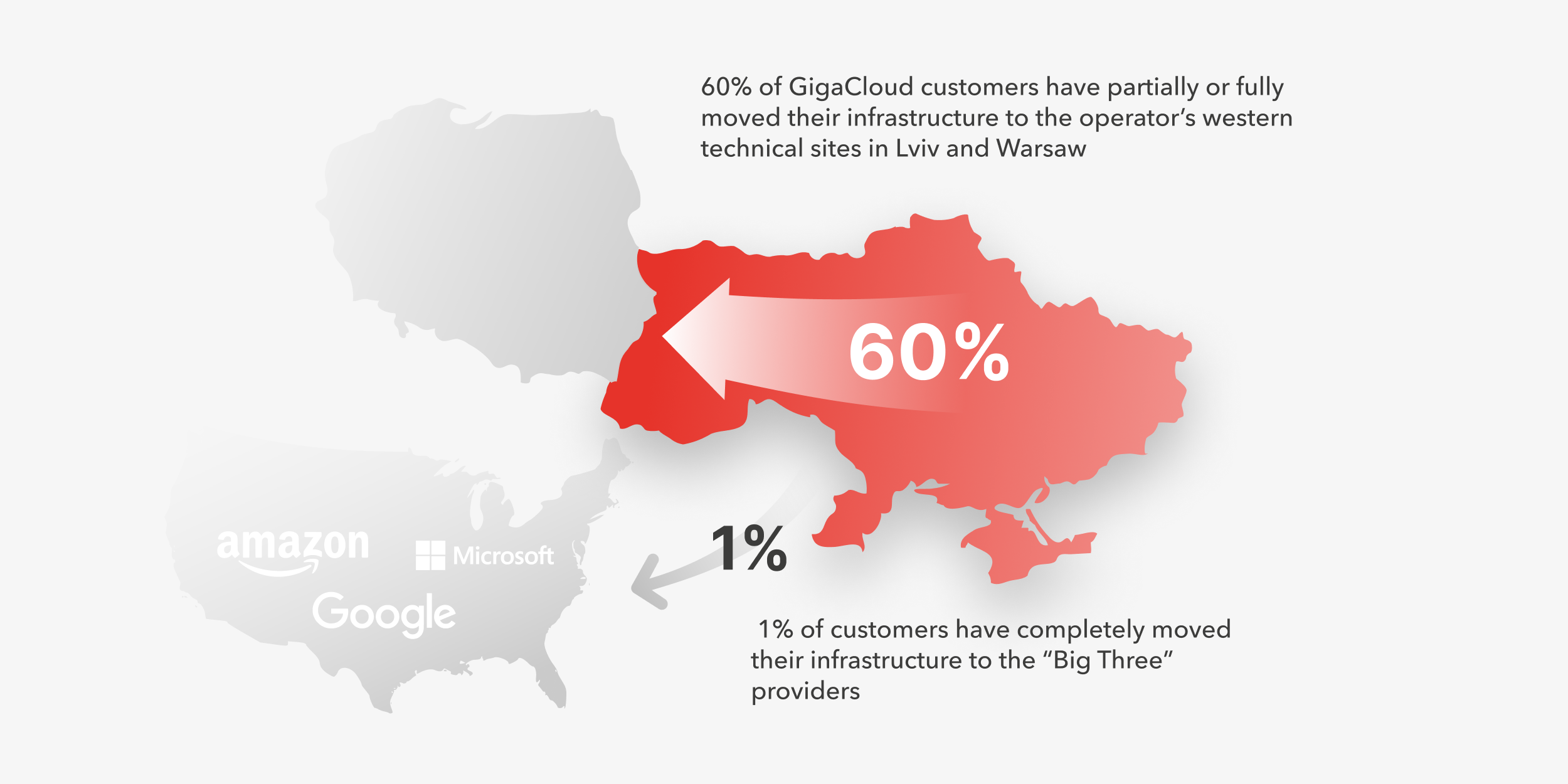The Public Sector Is Going Into the Clouds in Masse, and 10% of Businesses Have Suspended Their Projects
15.09.2022
GigaCloud, the cloud operator, has summed up the results of the first half of 2022 and told us how the cloud services market feels itself against the background of the war, what is happening with Ukrainian businesses, as well as outlined four cloud trends of 2022.
«The full-scale invasion of russia became the second turning point in the history of Ukrainian clouds», GigaCloud statement says. «The first one was in 2014/2015, when many large companies had to urgently migrate their services from the east of Ukraine. Back then, the cloud turned out to be the only way to quickly accomplish what used to take months and years. Now, when you need to quickly migrate your data and IT services to a secure area, there is no other option than using cloud infrastructure. Shortly, businesses and the state will not build their own data centres, and the cloud will become the basis of IT infrastructures».
Private Cloud
The first and most important trend is the private cloud. It is a cloud infrastructure built and provided for personal use to one customer. In terms of functionality, it is in no way inferior to its own data centres, but it does not require capital investment and hardware maintenance. In six months of 2022, GigaCloud engineering team has built private clouds for nine major companies. This is three times more than in the same period last year.
Cloud as a Business Sustainability Tool
Business Continuity Planning is a set of processes and tools enabling to continue operations in the event of force majeure. In terms of IT services, this means that there should always be a backup site that can be quickly switched to in order to continue operations. The cloud can store an up-to-date copy of data, and the computing resources can be instantly increased if required.

Since the beginning of the year, about 60% of GigaCloud customers have made or moved backup copies of their projects to the cloud operator’s western availability zones—Lviv and Warsaw. Thanks to data centres in the EU and in the west of Ukraine, as well as the presence of several sites in Kyiv, the operator’s specialists build cloud solutions without single points of failure, and clients create a reserved infrastructure which is distributed geographically.
Since 24 February, the operator’s sites in the west of the country have increased several times. Today, the Lviv site has more than 70 servers that run 900 virtual machines of clients and store more than 3.6 PB of data. And the amount of RAM used in the infrastructure of the Lviv region increased almost 10 times during the war (from 4 TB to 35 TB).
Mass Migration of the Public Sector to the Cloud
Before the war, the share of the public sector in GigaCloud sales amounted to more than 10%, and now it is 25%. Experts assume that this direction will grow rapidly in the coming years. This will also be facilitated by the Law “On Cloud Services” signed by the President.
An important role in the public sector migration to the cloud was played by the support of the Big Three: Amazon AWS, Microsoft Azure and Google Cloud. At the beginning of the war, they provided free loans to Ukrainian public organisations for the placement of IT services. Having experienced the possibilities and advantages of working in the cloud, hundreds of government customers will no longer want to return to their own servers.
«Freezing» of the IT infrastructure
Studies show that the war slowed down or stopped the work of 86% of Ukrainian companies. Someone stopped individual projects, someone was forced to completely close their business. Since the beginning of the war, the churn of GigaCloud customers has been 10%. Accounts receivable from customers increased by 4.2 times. 3.6% of customers could not pay their bills. GigaCloud “froze” the resources of such customers free of charge and stored them for free in its cloud for six months.
«Despite the most difficult first months of the war, the GigaCloud infrastructure works regularly, which allows tens of millions of Ukrainians to use the services of our customers every day. The team had to work many times harder and faster, but we managed and continue creating clouds for the freedom of our customers», the GigaCloud cloud operator concluded.





